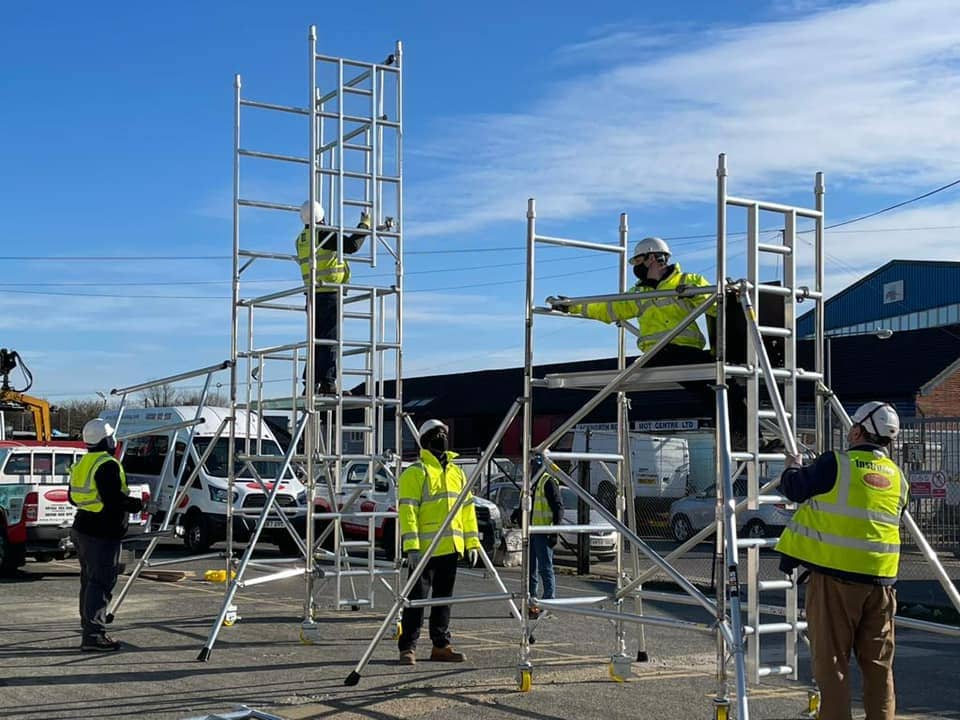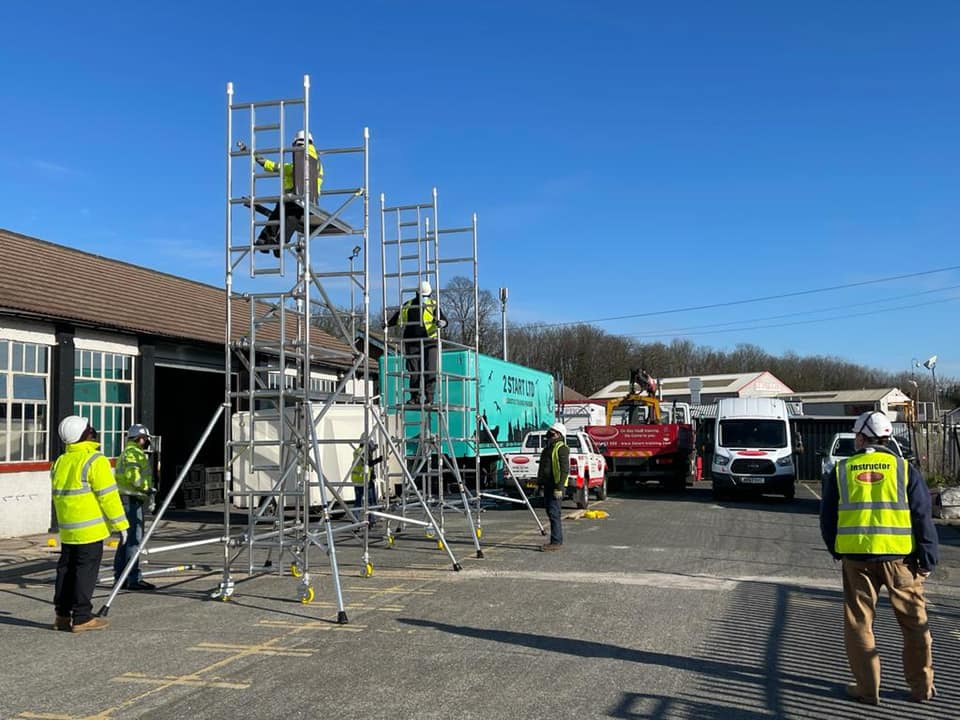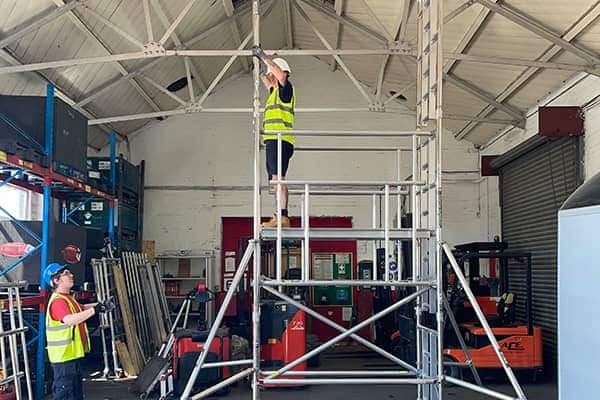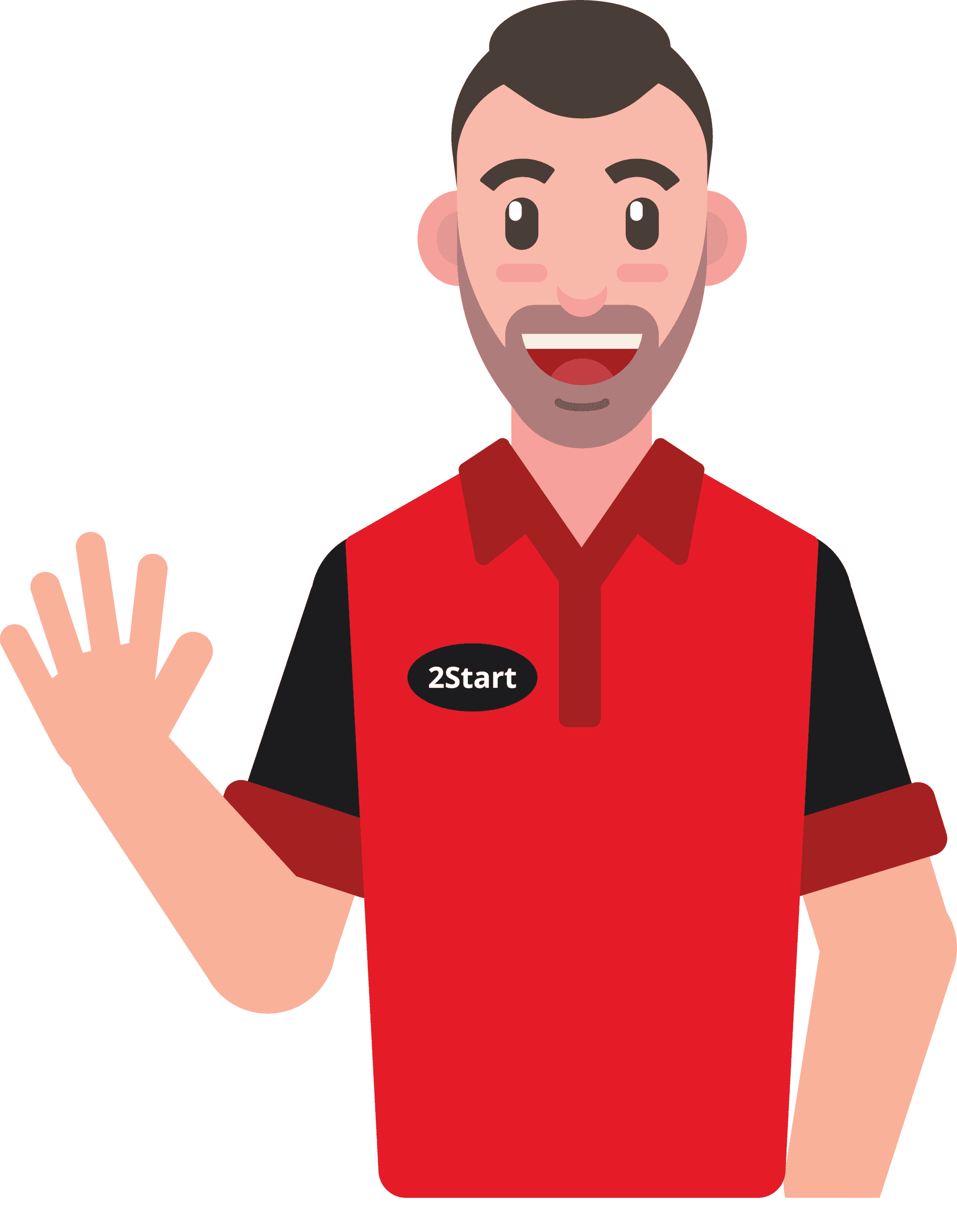What is PASMA?
Although also a name for the accreditation behind the course, PASMA (Prefabricated Access Suppliers’ and Manufacturers’ Association) is also typically known as scaffolding and mobile access towers.
The use of access towers training is to be able to assemble, mount and disassemble the equipment safely and securely. This is deemed as a temporary structure, which is used for workforces to aid in:
- Maintenance
- Construction
- Repairing
- Building
You will need essential training if:
- You manage a team who use scaffolding
- You use your own scaffolding at home
- You use scaffolding at work
When looking at scaffolding towers, it is important to understand what different types of training there are.
Scaffolding training is typically a mix of theory and practical learning. The theory will be taught prior to learning the practical skills, as you need to gain an understanding of the health and safety procedures in place. This is to help you minimize risk of incident occurring.
These towers are normally used to complete work from heights, or any other places that are difficult to reach. The purpose of the usage of mobile access towers is to mitigate the risk of an incident occurring, resulting in casualties.
When looking to book training, there are different course types for different environments and skillsets.
Towers for Users
This type is for a complete beginner to scaffolding training. If you have never used mobile access towers before, then this is the training you will need to complete.
Towers on Stairs
Also known as stepped towers and stairway access towers, this type is typically for those who have already worked with mobile access towers, but must enhance their knowledge and training to be able to work on stairs.
Low-Level Access
This type of training is also known as podiums, pulpits, room scaffold or podium steps. This is typically for those who are completing work at heights under 2.5 metres.
Working at Heights
Working at heights is also typically a beginners course. For those who are looking to begin using mobile access towers, they will need to learn the essentials in how to work safely and securely at certain levels of heights.
Do you need a Certificate?
Although it is not a legal requirement to hold a certificate, it is expected that all who are working with the equipment should have the correct training to be able to stay safe and compliant. It is also highlighted in regulation five of the Work at Heights Regulation 2005.
This PASMA card/certificate (also known as a PASMA ticket) is valid for five years, and is also widely recognised across the mobile towers industry. Once your certificate and card has expired, you must complete refresher training to re-validate your certification and card.
To prove that you have undergone the required training, you would need to show that you have completed the relevant training. This can be checked with your operator card that you receive.
This card states what tower types you are trained for, as well as showing the experience you have. These are set as abbreviations.
Letter
Definition
Explanation
I
Instructor
This is for those who are allowed to teach one or more course. The category abbreviation on the card defines what courses they can teach.
M
Manager
This means that you can manage the team who are working at heights.
U
User
The standard certification for those who are trained. The category abbreviation states what they are trained to use.
R
S
Professional Tower Rigger
Access Tower Specialist
Both these abbreviations mean that the individual can assemble complex towers. They typically do this as a career, so they will have taken very advanced training and can undertake advanced practical demonstrations.
Letter
Category
A6
Towers with Cantilevers
A7
Towers with Bridges
A8
Linked Towers
A9
Large Deck Towers
Virtual Certificates from January 2022
From 1st January 2022, the organisation behind the towers training halted the of issuing hard copies of certificates. All candidates who complete and successfully pass their training with 2 Start will now be sent a PDF copy of their digital certificate via email.
This change will mean certificates can be shared more easily and kept in a more secure way via a digital format.
Can you fail a PASMA course?
In short, yes. These courses are assessed by an accredited instructor. If the instructor believes that you are unsafe during practical assessment, they will fail you. You can also be failed if the instructor feels that you are not taking the course seriously, or not paying attention.
Your Earning Potential
According to the Total Jobs salary checker, as of August 2023, a typical scaffolder can earn an average of £31,787, and a potential of £41k. This highlights the benefits of becoming trained, as you the knowledge and skills you will gain will make you favourable to employers.
Not only this, but having certified training as one of your qualifications will show the investment you have made towards building your skillsets. This is great to show off to employers.
Can I complete Training Online?
Although some courses involve theory-based training, it should be in your best interest to complete any mobile towers training at the training provider. This is because theory training is better learnt when studying with a team, which is where you can have group discussions about the competencies you must cover in your course.
Not only this, but typically, most training require students to complete practical training after the theory learning. This helps students put their knowledge into practice.
Course Durations for Towers
2 Start supply several one-day mobile tower courses. 2 Start do also offer IPAF & PASMA combined courses, which last for two-days.
When booking a course, you can have the training completed by your entire workforce if needed. You can also look at completing the training off-site if you have the relevant space and equipment for training.









Leave a Reply